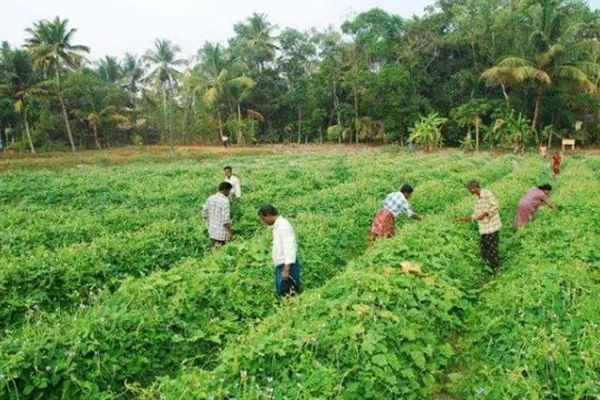An academic paper published recently highlighted the implications for sustainability, profitability, and Food Security due to Zero Budget Natural Farming (ZBNF).
Key Findings of the Paper:
- It was conducted by the National Bank for Agriculture and Rural Development (NABARD) and Indian Council for Research on International Economic Relations (ICRIER).
- The paper was titled ‘Zero Budget Natural Farming (ZBNF): Implications for Sustainability, Profitability, and Food Security’.
- It cautioned the government against a complete switch to natural farming, on the ground that it can hamper national food production.
- A sheer disparity was observed in the two studies on ZBNF conducted by various scientific institutions.
- It includes Centre for Economic and Social Studies (CESS), Institute for Development Studies Andhra Pradesh (IDSAP), Indian Council of Agricultural Research (ICAR), and Indian Institute of Farming Systems Research (IIFSR).
Studies by CESS-IDSAP:
- A study was conducted in Andhra Pradesh on six main crops (paddy, groundnut, cotton, Bengal gram, black gram, and maize).
- It suggested low expenditure on biological inputs and lower paid-out costs for the ZBNF farmers in comparison with non-ZBNF farmers.
- The yield was also higher in most ZBNF crops than the non-ZBNF crops, ranging between 0.94% and 23.4%.
Studies by ICAR-IIFSR:
- ZBNF tested the basmati rice-wheat cropping system at Pantnagar (Uttarakhand), Ludhiana (Punjab), Kurukshetra (Haryana), and Modipuram (Uttar Pradesh) for three years.
- Despite the low input cost, returns for ZBNF farmers could not improve due to low yields under the ZBNF system.
- The rice had 22.6% and wheat had an 18.2% lower cost of cultivation in ZBNF than integrated crop management (ICM).
- The study also predicted a 32% decline in basmati rice yields and a 59% decline in wheat yields from the current levels if ZBNF is adopted on a large scale.
Challenges and Recommendations:
- It recommended for long-term experimentation before declaring ZBNF a nationwide agriculture practice.
- In case of organic farming and related practices, it is successful in niche markets where a premium price can compensate for the returns from lower yields.
- A complete switch to organic mode can hamper national food production.
- Resilient supply chain networks for the farm inputs required in natural farming are a prerequisite to transitioning towards natural farming.
- ZBNF concoctions can pose environment and output sustainability issues, so long-term research and third-party surveillance can adopted on a pilot basis.
- The Sri Lankan crisis (food shortage) highlights need for preparatory actions like educating the farmers and consumers about the likely impact of the switch.
- Creation of adequate infrastructure like input availability for new farming method and maintenance of supply chains before banning the utilization of inorganic fertilizers.
Ref:Source
| UPSC IAS Preparation Resources | |
| Current Affairs Analysis | Topperspedia |
| GS Shots | Simply Explained |
| Daily Flash Cards | Daily Quiz |



